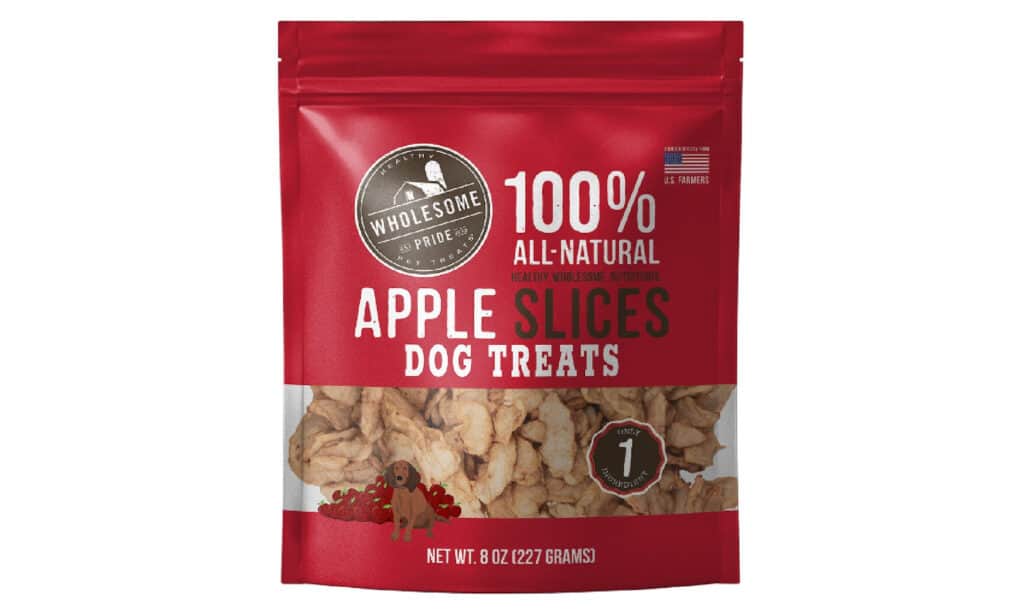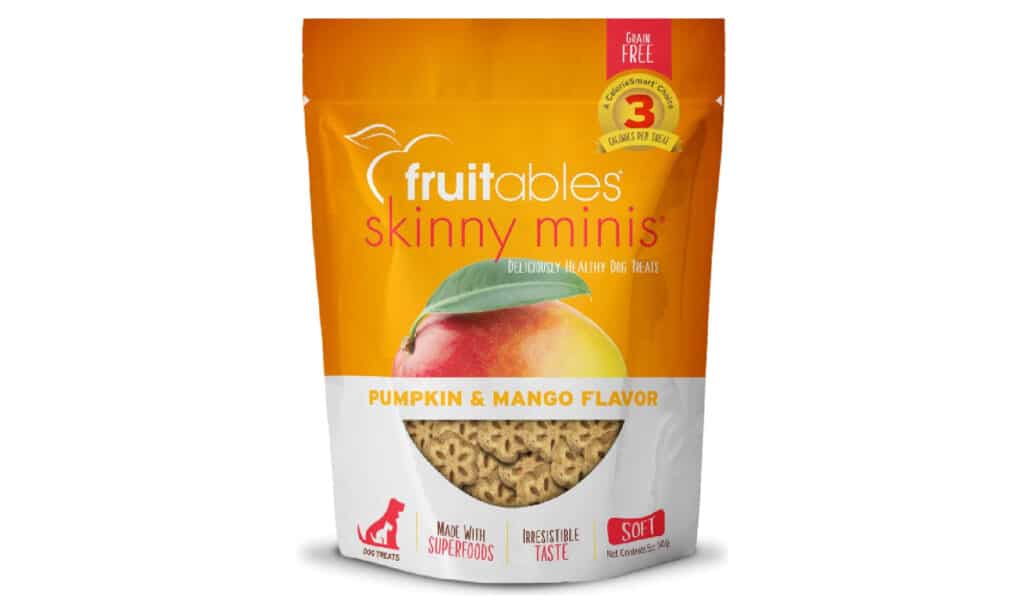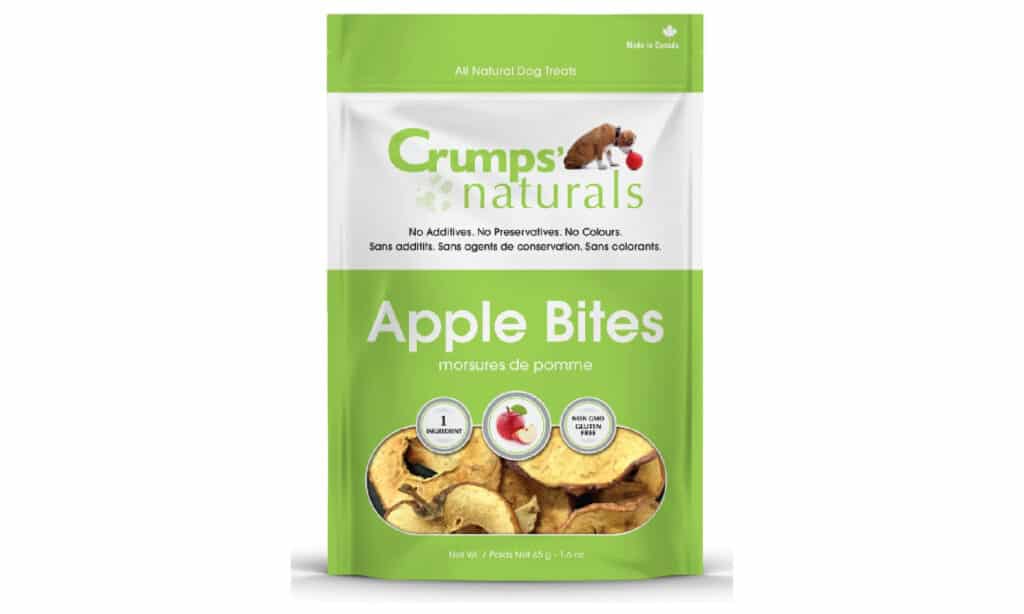Are you a dog owner who loves to share your meals with your furry friend? If so, you may be wondering if your pup can enjoy the unique taste and potential health benefits of bitter melon. This tropical fruit, also known as bitter gourd or karela, is a staple in many Asian cuisines and has gained popularity in the Western world for its potential health benefits. However, not all human foods are safe for dogs to eat, and it’s important to know whether bitter melon is a safe option for your four-legged companion. In this blog, we’ll explore whether dogs can eat bitter melon, its potential benefits, and any precautions you should take before feeding it to your furry friend.

What Is Bitter Melon?
Bitter melon, also known as bitter gourd or karela, is a tropical fruit that is widely used in many Asian cuisines, particularly in Indian, Chinese, and Filipino dishes. This oblong-shaped fruit has a bumpy, green exterior and a spongy white interior filled with seeds. As its name suggests, bitter melon has a distinct bitter taste that may take some getting used to. However, despite its bitter taste, it has become increasingly popular in recent years for its potential health benefits.
Bitter melon is low in calories and high in fiber, making it a nutritious addition to any diet. It is also rich in vitamins and minerals, including vitamin C, potassium, iron, and beta-carotene. Additionally, bitter melon contains compounds like charantin, momordicin, and vicine, which have been shown to have potential benefits for managing blood sugar levels, improving insulin sensitivity, and reducing inflammation.
While bitter melon is a staple in many cuisines, it’s important to note that not all human foods are safe for dogs to eat. In the next section, we’ll explore whether dogs can safely enjoy the potential health benefits of bitter melon.
Can Dogs Have Bitter Melon?
If you’re a dog owner who enjoys sharing your meals with your furry friend, you may be wondering whether bitter melon is a safe option for your pup. While bitter melon is a nutritious fruit with potential health benefits for humans, it’s important to know whether dogs can safely enjoy this tropical fruit.
The short answer is that bitter melon is not toxic to dogs, and in small amounts, it is generally safe for them to eat. However, as with any human food, there are some precautions you should take before feeding it to your furry friend.
Firstly, bitter melon has a very strong and bitter taste that not all dogs may enjoy. Some dogs may even find it unpalatable or refuse to eat it all together. Additionally, if your dog has a history of digestive issues or a sensitive stomach, feeding them bitter melon may cause stomach upset or diarrhea.
Furthermore, bitter melon has blood sugar-lowering properties, which can be beneficial for humans with diabetes but may pose a risk for dogs. If your dog has diabetes or is on medication to manage their blood sugar levels, it’s essential to consult with your veterinarian before feeding them bitter melon or any other human food.
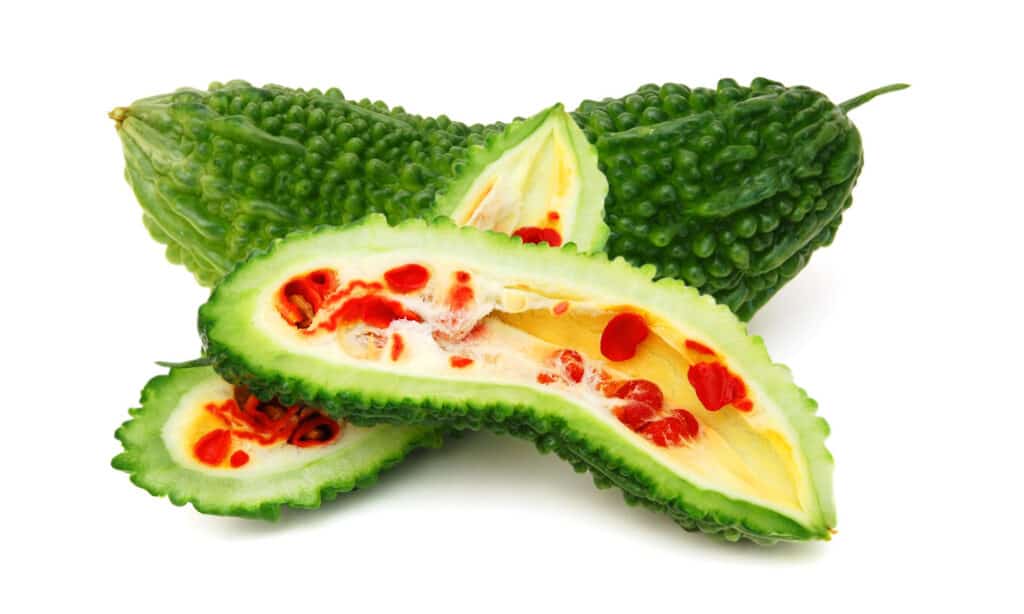
Harmful Ingredients in Bitter Melon:
While bitter melon is generally safe for dogs to eat, there are some potential risks and harmful effects to be aware of. Firstly, as mentioned earlier, bitter melon has blood sugar-lowering properties, which can be beneficial for humans with diabetes but may pose a risk for dogs. Feeding your dog large amounts of bitter melon can cause their blood sugar levels to drop too low, leading to hypoglycemia. This can be especially dangerous for dogs with diabetes or those on medication to manage their blood sugar levels.
In addition, bitter melon contains compounds that may interfere with the absorption of certain medications. If your dog is on medication, particularly for diabetes or blood pressure, it’s crucial to consult with your veterinarian before feeding them bitter melon or any other human food.
Furthermore, bitter melon has a high fiber content, which can be difficult for some dogs to digest. Feeding your dog too much bitter melon or introducing it too quickly to their diet can cause digestive issues, such as diarrhea, vomiting, and stomach upset.
Lastly, it’s important to note that bitter melon should not be used as a substitute for veterinary care. While bitter melon may have potential health benefits, it is not a cure for any medical condition, and feeding it to your dog should not replace proper veterinary care and treatment.
Safe Ingredients in Bitter Melon:
While bitter melon poses some potential risks and harmful effects for dogs, there are also some benefits and safe aspects to be aware of. Firstly, bitter melon is a low-calorie, high-fiber fruit that can be a nutritious addition to your dog’s diet. It contains a variety of vitamins and minerals, such as vitamin C, potassium, iron, and beta-carotene, that can support your dog’s overall health.
Additionally, bitter melon contains compounds like charantin, momordicin, and vicine, which have been shown to have potential benefits for managing blood sugar levels, improving insulin sensitivity, and reducing inflammation. While these benefits may be more relevant to humans, they can also be beneficial for dogs with certain health conditions, such as diabetes or arthritis.
Moreover, bitter melon is not toxic to dogs, and in small amounts, it is generally safe for them to eat. If your dog enjoys the taste of bitter melon, it can be a healthy and tasty treat to add to their diet.
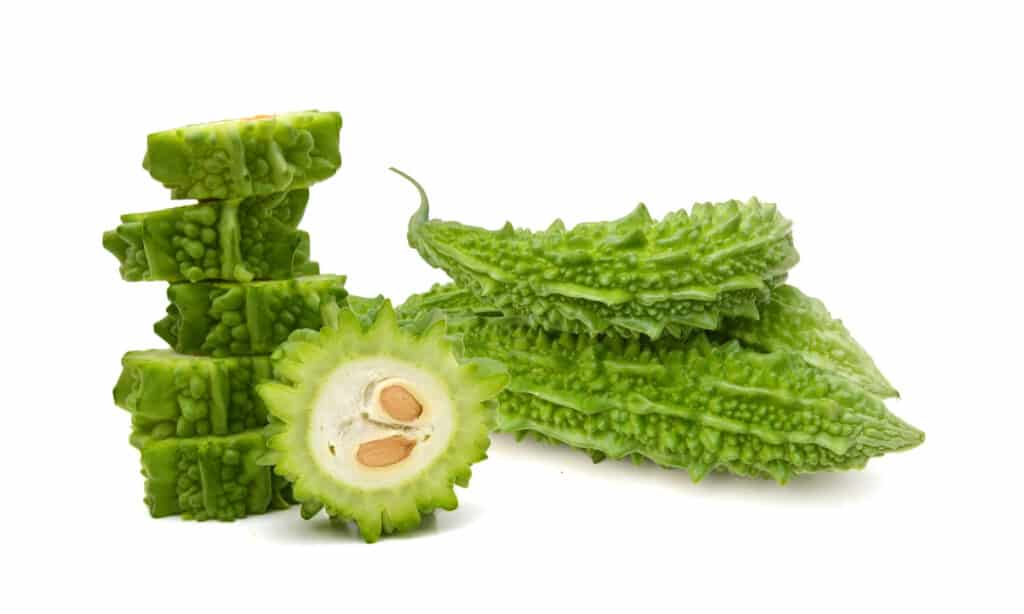
What Signs To Watch For If Your Dog Accidentally Ate A Lot of Bitter Melon?
If your dog accidentally eats a lot of bitter melon, there are some signs and symptoms to watch for that may indicate an adverse reaction. These can include:
- Stomach upset: Bitter melon has a high fiber content that can be difficult for some dogs to digest. Feeding your dog too much bitter melon can cause stomach upset, such as diarrhea, vomiting, and abdominal pain.
- Hypoglycemia: Bitter melon has blood sugar-lowering properties that can be dangerous for dogs with diabetes or those on medication to manage their blood sugar levels. Feeding your dog a large amount of bitter melon can cause their blood sugar levels to drop too low, leading to hypoglycemia. Symptoms of hypoglycemia can include lethargy, weakness, confusion, seizures, and coma.
- Gastrointestinal blockage: Bitter melon has a bumpy and fibrous exterior that can be difficult for some dogs to chew and swallow. If your dog eats a large amount of bitter melon, it may cause gastrointestinal blockage, which can be a medical emergency. Symptoms of gastrointestinal blockage can include vomiting, diarrhea, abdominal pain, loss of appetite, and lethargy.
If your dog exhibits any of these symptoms after eating a lot of bitter melon, it’s essential to seek veterinary care immediately. Your veterinarian may recommend supportive care, such as fluid therapy and anti-nausea medication, to help manage your dog’s symptoms and prevent further complications. In severe cases, surgery may be necessary to remove any blockages or obstructions in your dog’s digestive system.
When or If You Should Go To The Vet?
If your dog accidentally eats a lot of bitter melon and exhibits any symptoms or signs of an adverse reaction, it’s important to seek veterinary care immediately. Even if your dog seems fine at first, it’s better to err on the side of caution and have them evaluated by a veterinarian.
Your veterinarian can assess your dog’s condition and determine the best course of action. They may recommend supportive care, such as fluid therapy and anti-nausea medication, to help manage your dog’s symptoms and prevent further complications. In severe cases, surgery may be necessary to remove any blockages or obstructions in your dog’s digestive system.
It’s important to note that some symptoms of an adverse reaction to bitter melon, such as hypoglycemia, can be life-threatening if left untreated. Therefore, it’s crucial to seek veterinary care as soon as possible if your dog exhibits any concerning symptoms after eating bitter melon.

Safe Dog-Friendly Alternative to Bitter Melon:
If you’re searching for a safe and healthy alternative to bitter melon for your furry companion, there are several fruits and vegetables that you can consider. Carrots, for example, are an excellent option since they’re low in calories and high in fiber, providing your dog with a nutritious and delicious treat. They’re also rich in vitamins and minerals such as beta-carotene, vitamin K, and potassium.
Another vegetable that you can try is green beans, which are also low in calories and high in fiber, making them an excellent addition to your dog’s diet. Green beans are also a good source of vitamins and minerals such as vitamin C, vitamin K, and manganese.
Sweet potatoes are another healthy and flavorful alternative to bitter melon. They’re packed with fiber, vitamins, and minerals such as beta-carotene, vitamin C, and potassium, making them a nutritious and tasty root vegetable for your furry friend.
Apples are a sweet and crunchy fruit that can also be a healthy and safe treat for your dog. Apples are rich in fiber and vitamin C, and they contain antioxidants that can support your dog’s overall health.
Remember to introduce these fruits and vegetables gradually and in small amounts, as they can cause stomach upset in some dogs. Always remove any seeds, stems, or cores before feeding these foods to your dog, as they can pose a choking hazard or cause digestive issues.
In summary, while bitter melon may not be suitable for all dogs, there are many safe and healthy alternatives available that can provide similar nutritional benefits for your furry friend.
Healthy Store-Bought Options:
In conclusion, bitter melon can be a safe and nutritious addition to your dog’s diet in moderation. It contains a variety of vitamins and minerals and has potential health benefits that can support your dog’s overall health. However, it’s important to introduce it gradually and in small amounts and to consult with your veterinarian before feeding your dog bitter melon or any other human food.
If you’re looking for a safe and healthy alternative to bitter melon, there are several fruits and vegetables that you can consider. Carrots, green beans, sweet potatoes, and apples are just a few examples of dog-friendly foods that can provide similar nutritional benefits for your furry friend.
Remember to always introduce new foods gradually and in small amounts, and to consult with your veterinarian before making any significant changes to your dog’s diet. By following these guidelines, you can ensure that your dog receives a balanced and nutritious diet that supports their overall health and well-being.
~Lindsie

